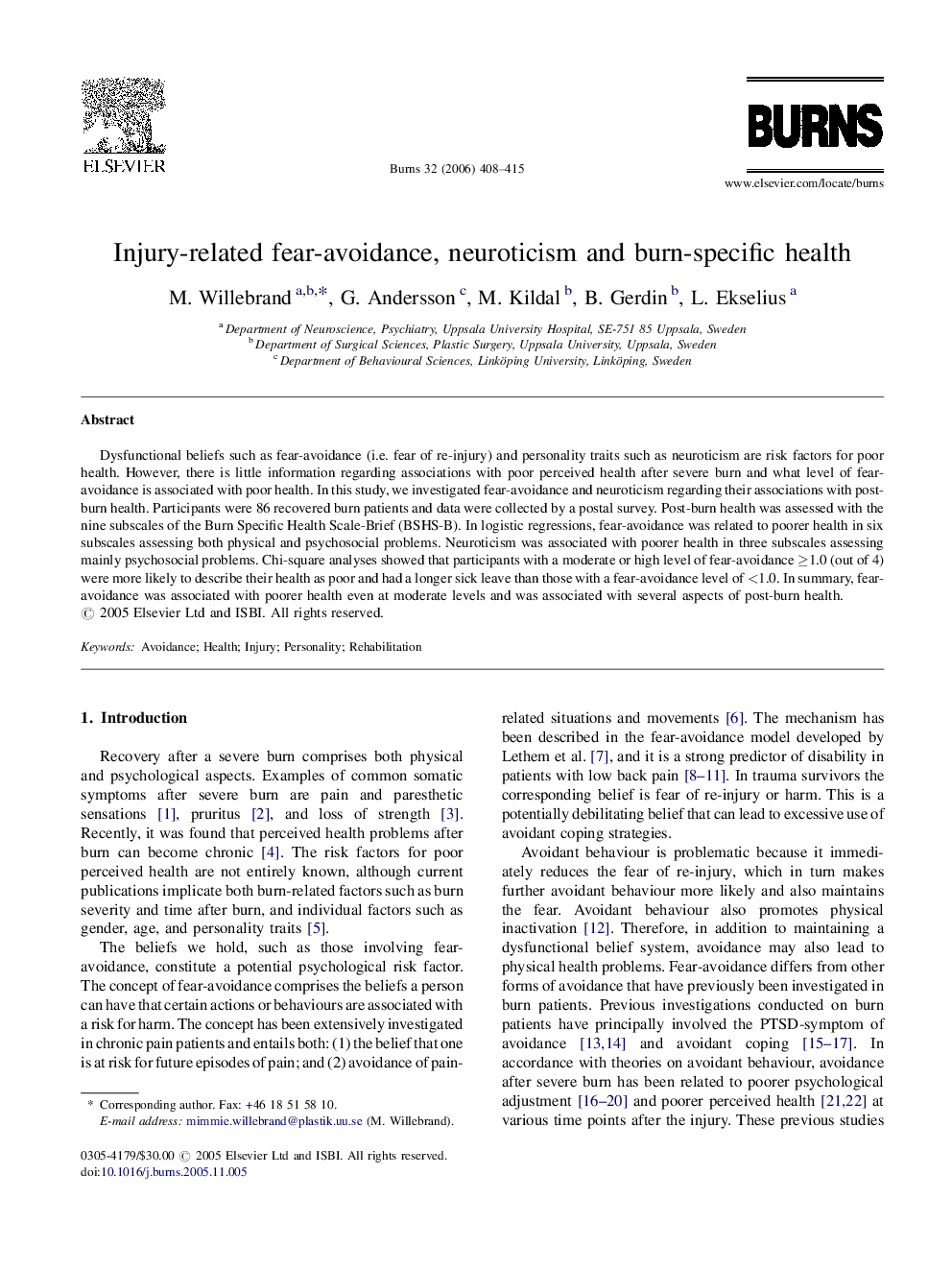| Article ID | Journal | Published Year | Pages | File Type |
|---|---|---|---|---|
| 3106933 | Burns | 2006 | 8 Pages |
Dysfunctional beliefs such as fear-avoidance (i.e. fear of re-injury) and personality traits such as neuroticism are risk factors for poor health. However, there is little information regarding associations with poor perceived health after severe burn and what level of fear-avoidance is associated with poor health. In this study, we investigated fear-avoidance and neuroticism regarding their associations with post-burn health. Participants were 86 recovered burn patients and data were collected by a postal survey. Post-burn health was assessed with the nine subscales of the Burn Specific Health Scale-Brief (BSHS-B). In logistic regressions, fear-avoidance was related to poorer health in six subscales assessing both physical and psychosocial problems. Neuroticism was associated with poorer health in three subscales assessing mainly psychosocial problems. Chi-square analyses showed that participants with a moderate or high level of fear-avoidance ≥1.0 (out of 4) were more likely to describe their health as poor and had a longer sick leave than those with a fear-avoidance level of <1.0. In summary, fear-avoidance was associated with poorer health even at moderate levels and was associated with several aspects of post-burn health.
